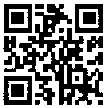This was originally going to be a quick posting about how I was trying to integrate
Quizlet sets more into class at the table (rather than at the PC) now that I have my old iPhone 3 freed up as de facto iPod Touch.
 |
| Created on Tagxedo - regular past tense verbs in "Lost in the Jungle" |
I was just about to start tapping away when I came across a blog posting on a very related topic - how to "teach" the pronunciation of regular verbs in the past tense: the -ed ones. It has taken me a few days to think about this one in a wider context...
I do not think (young) learners need to be told what they are going to learn, explicitly. Nor do they need to be scared with the mechanics of what they are going to do - before `we` have got there together (something I am sure David Paul would want students to
realise for themselves). Of course, we (teachers) need to teach; that does not mean we have to stand at the front of the class & deliver pronouncements from on high. Far from it...
 |
| Complementary media - book & iOS |
I like the dawn of realisation to sneak up on my students nice and quietly - preferably while they are reading. And that is secret weapon number one, methinks. Graded readers, deployed nice and strategically, quietly. Children aren`t daft - they recognise patterns, form opinions, arrive at conclusions. And after that, they ask questions or can have ideas teased out. With -ed endings, my favourite is to ask them to underline all the verbs (or 'doing' words, however you explain them?) as we listen to a new reader. My fave series has a CD narration of each title in the pack. I don`t have to explain they are all past tense; by the end of the book they want to know why they have all got -d or -ed stuck on the end (they have already come across the same words enough times to keep
Paul Nation happy!). Teacher question = "When did this happen?"
 |
| Using Quizlet app to find irregular past tenses |
Leave "it", the nutty crunchy grammar thing alone. Play with the book; get into the comprehension questions, true/false stuff, vocabulary mining. Mess about with the pictures and generally ENJOY READING. Again, my fave graded reader series has a dedicated workbook for each story - puzzles, yes/no, gap filling. They get suitably harder as the books climb in ambition. These are not a class activities; extra-curricula & opt-in. We follow up in class for sure - but the past tense thing is something I want to focus on here.
Once we have done everything else we usually do with the readers ("finished" them if you like!), one last teacher challenge. Listen for the words you underlined, and circle them in one of three colours (you choose the colours - but be consistent after this decision!)

- Red - if you hear a /d/ sound on the end
- Black - if you hear a /t/ sound on the end
- Blue - if you hear an "extra" syllable (ie longer than the original word) = /Id/ sound on the end
A word to the wise; every teacher has a slightly different way of pronouncing words.
Decide how you are going to say your own -ed endings as a teacher, and hereafter be consistent. There are no golden rules; a general agreement, yes. What does your school want the students to be producing? What do the other teachers teach?
After all of that, I can`t imagine a book which managed to only use regular past tense verbs. Can you? Would be rather odd. I love Quizlet for making, saving & sharing online falshcards; a dedicated app means they can also be accessed by iOS. In this instance I wrote a list of the verbs (present tense) that occured in the story, and asked students to copy the list onto the inside back cover of their readers - usefully bank. Using the 'learn' function, students could match the present & past tense forms & then scribble it down - if they had not already known or guessed (encouraged them to dive back through the book to find the words too).
 |
| Screen shot, Quizlet app 'learn' function |
Once learners have finished this task, there is a 'scatter' game, with a timer = immmediately compels YLEs to compete. Drilling, anyone?

















